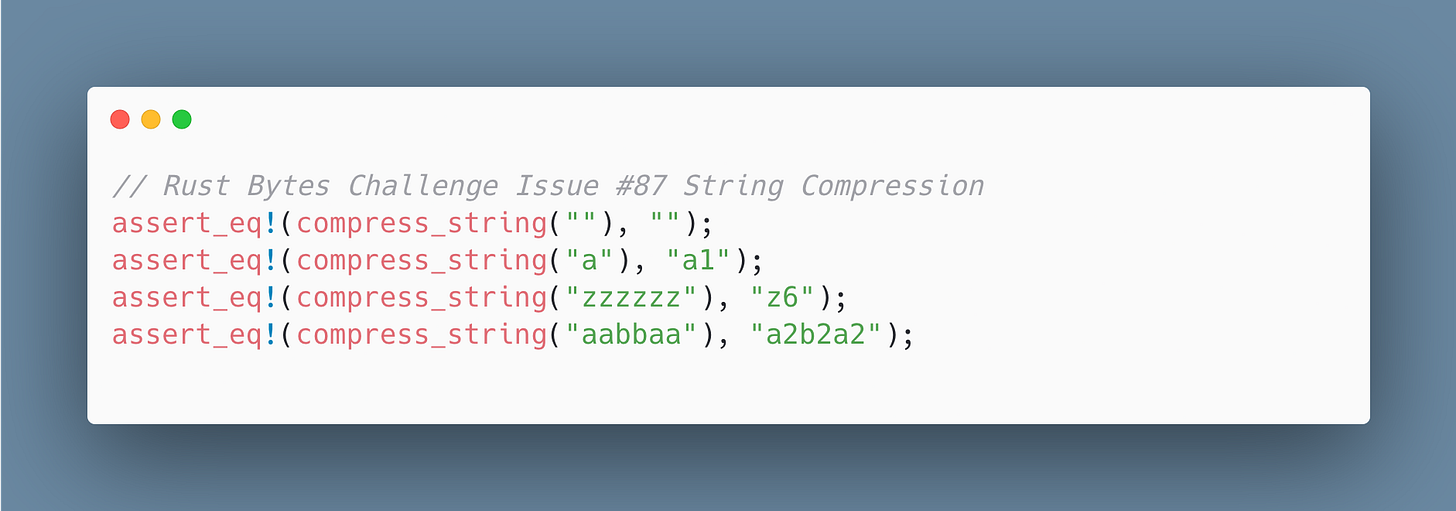🦀 The Sad Reality of Rust Adoption
Today’s Issue: The Expression Problem and Rust, RustConf 2025 Recordings, and Rust at Volvo Cars
Happy new month, Rustaceans
I hope you had a wonderful first week of Techtober. Let's roll!
In this issue, we'll discuss the current debate on Rust’s adoption, present a Rust challenge, spotlight an amazing Rust project, and share 10 incredible links of the week.
Here’s issue 87 for you!
Thank You
Two months ago, we paused the Rust challenges to host Rust Q&A interviews with prominent figures in the Rust community.
We sincerely want to thank everyone who took the time to participate. We really appreciate your time and effort. For those who couldn’t, we completely understand and hope you’ll join us in the next one.
And given the positive feedback we got, we’re excited to continue this series next year as well.
Now, on to our main news.
MAIN NEWS
🦀 The Sad Reality of Rust Adoption
If you’ve been hanging around developer socials, then you’ve obviously heard the heated debate recently about Rust’s adoption by established software, especially in Coreutils and Git.
Some devs are thrilled, while others are not-so happy about the move especially in battle-tested projects. The internet has, naturally, turned it into a meme war.
Some people are convinced Rust adoption is all a master-planned, 100% orchestrated takeover, sacrificing decades of “perfectly secure” code for the sake of new language syndrome.
If you’ve missed it, Ubuntu 25.10 tag named “Questing Quokka” is shipping with a Rusty version of Coreutils (aka the thing that makes ls, cat, and rm actually do stuff).
Meanwhile, Git maintainers are considering introducing Rust into the world’s most important source control system.
Here’s the thing, GNU Coreutils has had its share of security flaws (yep, even your beloved sort had a vulnerability).
Writing flawless, memory-safe C is like trying to juggle knives while blindfolded, you can do it, but eventually, you’re going to lose a finger. Rust doesn’t guarantee faster, but it gives devs fewer ways to accidentally set their code on fire. And in production land, “less on fire” is usually a win.
Some critics argue Rust rewrites are just devs chasing shiny new toys. But the reality? Most big companies don’t throw out tech unless it solves something painful, and memory safety is a very expensive pain.
Rust’s been around for a decade now, and seeing it slide into projects like Coreutils and Git isn’t about novelty. It’s about maintainability, fewer CVEs, and less weekend times spent fixing segfaults.
Will Rust kill C? Nah. The world has too much C for that. But rewriting critical parts in Rust makes sense where it counts.
RUST CHALLENGE 🦀
Rust challenges are back and below is an interesting challenge for you to solve.
String Compression
Your task is to implement a compress_string function that compresses a string by replacing consecutive repeated characters with the character followed by the number of repetitions.
Test your solution on Rust Playground. Once completed, please share your solution and tag us either on X, BlueSky, Mastodon, LinkedIn, or reply to this email.
Help Us Improve Rust Bytes
We just launched a short survey to better understand your needs and how we can make Rust Bytes even more useful (and fun) for you.
Your feedback means a lot, take a minute to share your thoughts.
PROJECT SPOTLIGHT 💡
HelixDB
HelixDB is a database built from scratch to be the backend for any AI application.
Databases were built for humans, structured tables, neat rows, and polite SQL. Problem is, AI doesn’t care about your rows. It wants vectors, graphs, and unstructured chaos. That’s what HelixDB aims to solve.
Here’s why HelixDB could be a smart choice:
Built-in Embeddings - Forget pre-processing your data; HelixDB handles vectorization with a handy
Embedfunction.Graph + Vector First - It’s designed to natively store and traverse relationships and vectors, making knowledge graphs and RAG apps way less of a headache.
Agent Whisperer Mode - Built-in MCP tools let your bots sniff out data and stroll the graph with ease.
HelixDB is aiming to be the backbone for agents, RAG pipelines, and knowledge-driven applications.
HelixDB is open-source on GitHub at https://github.com/helixdb/helix-db.
AWESOME LINKS OF THE WEEK 🔗
The Cargo Team wrote a progress report for Cargo development, giving Rust users and contributors visibility into ongoing work, experiments, pain points, and upcoming features. The leadership council has opened registration for the 2026 Rust All Hands, taking place May 21–23 in Utrecht, Netherlands.
Matthias Endler interviewed Alexandru Ene (Principal Engineer at Amazon) and talked about how Rust powers Prime Video, the challenges of running a global streaming platform, and the wins Rust brings to their systems. [video]
Think Vec<T> is simple? Ha! Marek Markiewka pulls the curtain back on RawVec, Unique, and NonNull, showing how Rust hides unsafe chaos behind a friendly API.
Alisa Sireneva’s “The Expression Problem and Rust”, discusses why enums and traits can’t fully solve the issue and how generics, trait bounds, and clever hacks attempt to work around it.
In other news, Google’s tossing another $350k at Rust and $100,000 in Google Cloud credits to support the Rust Crate infrastructure.
Drew from Filtra interviewed Julius Gustavsson (System Architect at Volvo), about how Volvo Cars is adopting Rust for automotive software, its advantages over C/C++, and its role in supporting Volvo’s goals around safety, electrification, and autonomous driving.
If you missed RustConf 2025 or just want to relive the moment, all the talks are now on YouTube. [video]
Sean Olson open-sourced mitsein, a crate that provides strongly typed APIs for non-empty collections and views, including iterators, slices, vectors, and more.
Bevy v 0.17 is out bringing with it Solari’s raytraced lighting for global illumination magic, BVH culling shrugging off 115 billion triangles, and hot-patching systems for instant Rust tweaks.
Ferrous Systems is presenting at the European Space Agency’s Software Product Assurance Workshop, highlighting how Rust is being adopted across industries to build safer, faster, and more reliable software.
CodeCrafters: Become a Better Rust Engineer
CodeCrafters created amazing Rust courses that push your skills beyond the basics.
You’ll have fun building real-world projects from scratch, including Git, Docker, Redis, Kafka, SQLite, Grep, BitTorrent, HTTP Server, an Interpreter, and DNS.
The courses are self-paced, so you can learn at your own speed. If you’re itching to level up your Rust skills, these courses are perfect for you.
Join for free and get 40% off when you upgrade. [affiliate]
SUPPORT RUST BYTES
You’re Rust Bytes’ biggest fans, and we love to see it.
Here’s how you can help:
❤️ Recommend Rust Bytes to your friends.
🤳 Connect with us on our socials: X, BlueSky, Mastodon, Publication.
☕️ Buy our editors a coffee.
📨 Email us at rustaceanseditors@gmail.com for sponsorship, feedback or ideas.
Last week was filled with a lot of activities for me, I hope you doing great wherever you are.
That's all for now, Rustaceans.
John & Elley.





The amount of people that just want to hate on it is crazy. I honestly can’t be bothered to use another language unless I absolutely have to. A lot of people say “they’re trying to put Rust where it doesn’t belong!” I hope they keep putting it everywhere so I’d never have to touch js or python again. once you experience the sustained joy of things usually working after they compile, going back to find undefined, or empties is hard. When you don’t have to spend lifetimes debugging multithreaded programs or finding out about memory allocation issues that happen only 0.01% of the time and require a lot of work to reproduce, going to any other language is down right horrible.
Let’s see how this goes